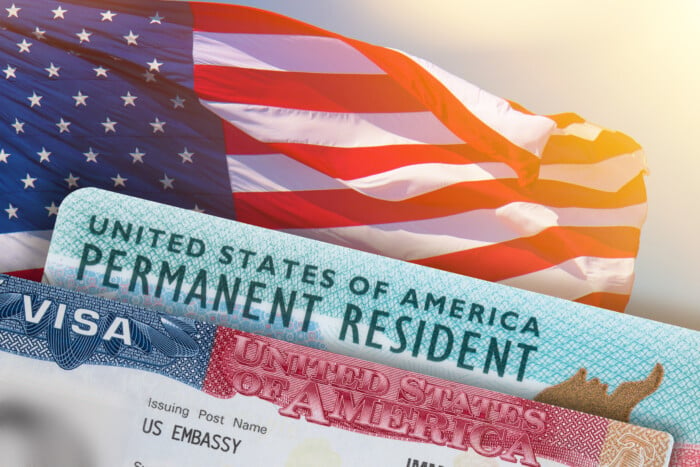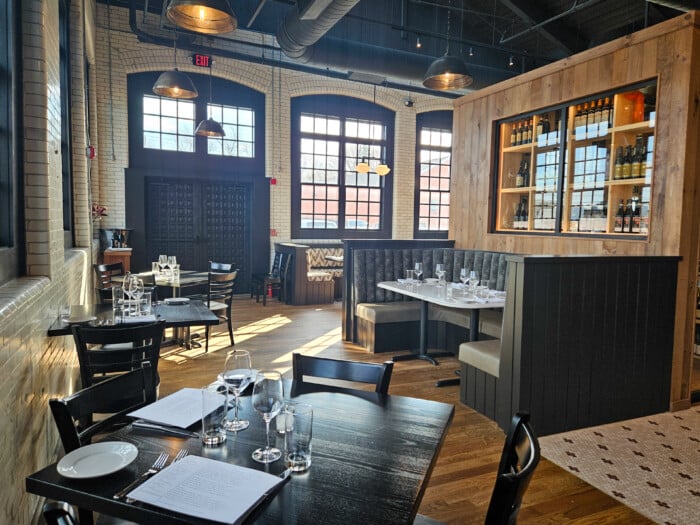Essay: NH Restaurants Should Give People With Disabilities a Chance
As a proud restaurant owner who is located just a stone’s throw from Portsmouth’s Market Square, I understand what it takes to make this happen. I also have a great deal of empathy for my employees and do my best to accommodate them and support them at every turn.
But nothing prepared me for a new hire situation that I encountered. The person in question definitely had all of the qualifications to work behind the counter and directly deal with our customers. There was only one hitch: They were deaf.
I have worked in the restaurant industry throughout New Hampshire for 20 years now. I began as a dishwasher, then host, waitress, bartender and now owner. It was the standard moving up the chain in the restaurant world. In 2018, I was lucky enough to get into a position to own my own business, Cup of Joe Café and Bar. Never in my wildest dreams would I have thought that this adventure would end in ownership.
During these past five years, I never stopped being a cleaner, cashier, server, barista or bartender. Managing and owning a business in this industry comes with a whole host of new experiences and challenges. I also know what it is like to lead the proverbial paycheck-to-paycheck life and work two jobs to make ends meet. I pride myself on helping my employees strike a healthy work-life balance if they have kids in school or other needs. I thought I had seen it all until I realized that I have never worked with anyone with a disability.
As I considered the pros and cons of hiring this person, then I thought, why not? I knew the service industry was behind the proverbial eight-ball for some trends like vacation, health care, paid leave. But as an able-bodied person, I didn’t think about the fact that our industry does not do enough to help people with physical or intellectual disabilities land jobs.
I decided I was going to have to trust my new hire to help lead me through this process and together we would achieve success. My new employee had a good amount of experience in customer service and cafés. From the beginning, they made it clear to me that they did not want to be given any special treatment from their co-workers. The minimal accommodations they required were easy to arrange with myself and their co-workers, but I always wondered if I was doing enough.
Some days, you’d never know. They are just like all of their other co-workers. But then some days their health issues take a front seat and, as a boss, it’s my job to make sure that they feel comfortable sharing those moments. One of the most important aspects is that we, as a team, are understanding and are communicating in real time.
For example, if a customer is wearing a mask, how does my hearing-impaired employee want to handle it? We came up with a plan where they simply nudge a co-worker to take over the register for a moment. They partially rely on reading lips, but we also want customers to feel safe and comfortable, too. Sometimes we are required to educate our customers because cafes are naturally loud places sometimes. When you add hearing-impaired issues into the mix, it is easy to see how things can get lost in translation.
I made the necessary accommodations to make this work. I challenge all restauranteurs to ask themselves these questions: what accommodations, above the basics of the law, would you make? How would you support your staffer? Can you prepare yourself so that if a future employee with either a physical or intellectual disability comes in, you will be ready?
With the exception of the occasional hiccups experienced by all service industry workers, regardless of hearing ability, this employee is very successful. They thrive in a customer service setting where their charm and confidence are put to use in chatting up customers at the bar. Day to day, if you walked in, you wouldn’t know that they have any disability that would affect their job. They can often be heard telling customers about their art that is displayed throughout the café, making restaurant suggestions or teaching me, their boss, some American Sign Language.
When one considers how many New Hampshire residents live with a physical or intellectual disability, it is obvious that businesses need to do more to help them so they can be woven into the fabric of their communities.
According to a 2021 report issued by the Institute on Disabilities at the University of New Hampshire in Durham, more than 170,000, or 1 in 8, New Hampshire residents have a disability. The same report notes that New Hampshire’s employment rate for its disabled citizens is 45.3%, which is better than the national average of 38.9% or better than any of our New England neighbors. The institute and the New Hampshire Department of Education’s Bureau of Vocational Rehabilitation are great resources for businesses that are willing to hire adults with disabilities.
The diversity of any business only helps to elevate the services they can offer to their clients. I have employees fluent in French, Italian, Spanish, Mandarin, and now, I can proudly say American Sign Language. I challenge our industry to think about how we can expand our ability to be more inclusive and diverse to those with physical and intellectual disabilities, because our communities are that much stronger when all are invited to participate.
This article is featured in the winter 2023 issue of 603 Diversity.
603 Diversity’s mission is to educate readers of all backgrounds about the exciting accomplishments and cultural contributions of the state’s diverse communities, as well as the challenges faced and support needed by those communities to continue to grow and thrive in the Granite State.













